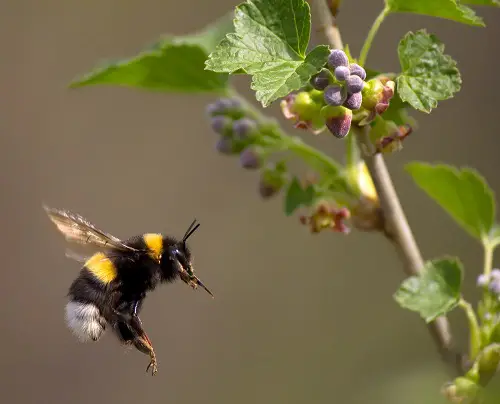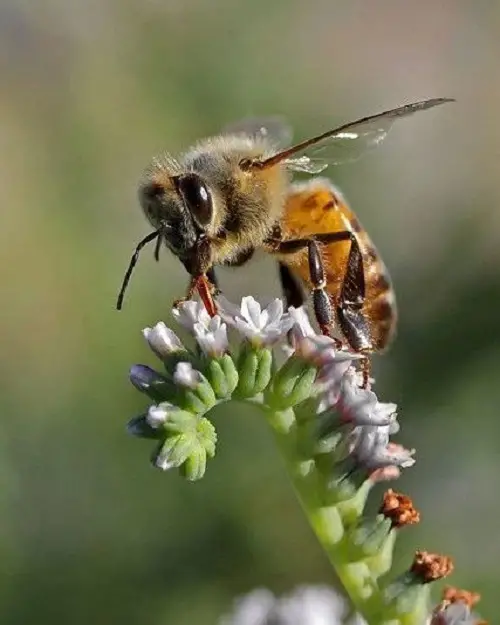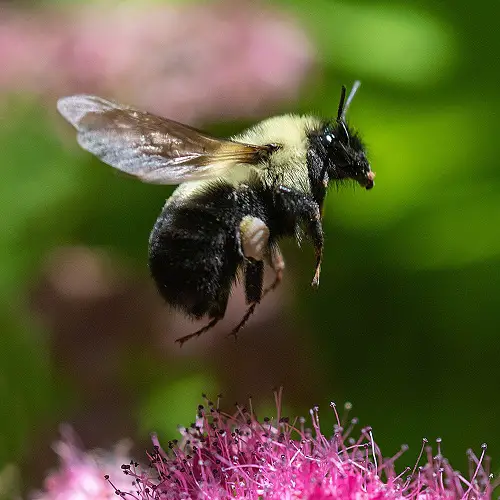Do Bumble Bees Sting? If you have this question and are also afraid a bit, then don’t worry! We will clear your doubts!
Do Bumble Bees Sting? You might get a flash of this question whenever you spot them in your yard. so, what’s the truth? Time to find out!
Do carpenter bees Sting? Find out
Do Bumble Bees Sting?
The answer is yes, bumble bees do sting. Like all bees, bumble bees have a stinger, which is a modified ovipositor (an egg-laying structure) that can be used for defense.
However, unlike some other types of bees, bumble bees are generally not aggressive and are unlikely to sting unless they feel threatened or provoked.
Bumble bees will usually only sting if you are going to step on, swat, or otherwise handle them roughly.
Can Bumble Bees Sting You Repeatedly?
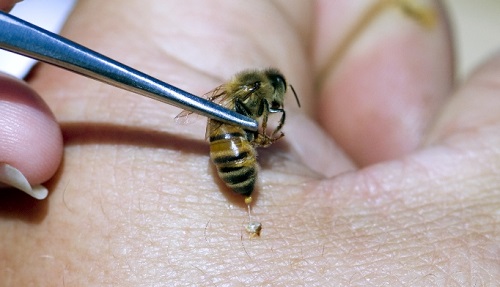 Unlike honey bees, bumble bees do not have barbed stingers, which helps honey bees to sting multiple times without injuring themselves. However, they do not sting more than once, as they do not typically attack aggressively and are more interested in collecting nectar and pollen from flowers.
Unlike honey bees, bumble bees do not have barbed stingers, which helps honey bees to sting multiple times without injuring themselves. However, they do not sting more than once, as they do not typically attack aggressively and are more interested in collecting nectar and pollen from flowers.
If they bite you, the bee can fly away without harming itself.
Are Bumble Bees Dangerous?
Bumblebees can sting if they feel threatened, but they are generally not dangerous. They are also not aggressive and will not sting unless you provoke them.
If a bumble bee does sting, it is usually mild and not particularly painful.
How to Prevent Bumble Bee Sting?
- Avoid swatting or hitting. Bumblebees will sting if they feel threatened, so it is important to remain calm and move slowly if you encounter one.
- Don’t wear bright colors or sweet-smelling perfumes. Bumblebees are attracted to these things and may become agitated if they think you are a flower.
- Stay away from their nests. These are usually found underground and can be identified by a large pile of dirt.
- Don’t try to pick up a bumblebee. These insects are very sensitive to the touch and will sting if disturbed.
Symptoms of Bumble Bee Sting
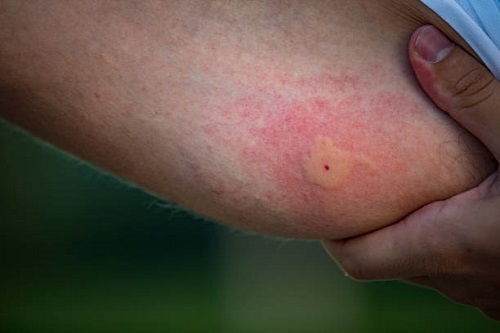
If the bee stings, you may experience pain and a burning sensation, followed by redness and swelling around the sting.
This can also cause itching or hives and, in some cases, mild to moderate allergic reactions, including difficulty breathing, swelling of the face or throat, and a rapid heartbeat.
Treatment for Bumble Bee Stings
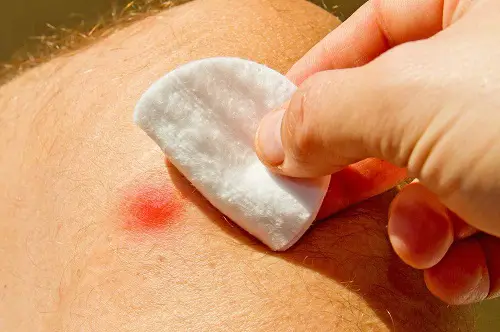
- Remove the stinger: Bumble bee stingers are not barbed, so they do not get stuck in the skin as honey bee stingers do. However, it’s still a good idea to remove the stinger as soon as possible, as it can continue to release venom into the skin.
- Clean the area: Wash the area around the sting with soap and water to help prevent infection.
- Apply a cold compress: Applying a cold compress or ice pack to the sting can help to reduce pain and swelling.
- Pain relievers: Over-the-counter pain relievers can help to alleviate pain and reduce swelling.
When to Seek Medical Attention?
While most bumble bee stings only cause mild to moderate symptoms, some people may experience more severe allergic reactions.
If you experience difficulty in breathing, swelling of the face, lips, throat, rapid heartbeat, or dizziness, it is the right time to seek medical attention without any delay.
How to Attract Bumble Bees for Pollination to the Garden?
- Plant a Variety of Pollinator-Friendly Flowers: Planting flowers that are rich in nectar and pollen is the best way to attract bumble bees to your garden. Try to include several different species with a range of colors, shapes, and sizes.
- Provide a Source of Water: Bumble bees need access to water to survive, so provide a shallow birdbath or another water source for them to drink from.
- Leave Some Bare Soil: Bumble bees need bare soil to build their nests, so be sure to leave some areas of your garden undisturbed.
- Provide Nesting Sites: Bumble bees will use abandoned rodent burrows or other naturally occurring cavities as nesting sites. If you have a large garden, you can also create artificial nesting sites by burying small containers in the ground.
- Avoid Pesticides: Pesticides can be harmful to bumble bees, so avoid using them in your garden.
- Plant Native Plants: Native plants are in tune with the local ecosystems and provide the best sources of nectar and pollen for bumble bees.

